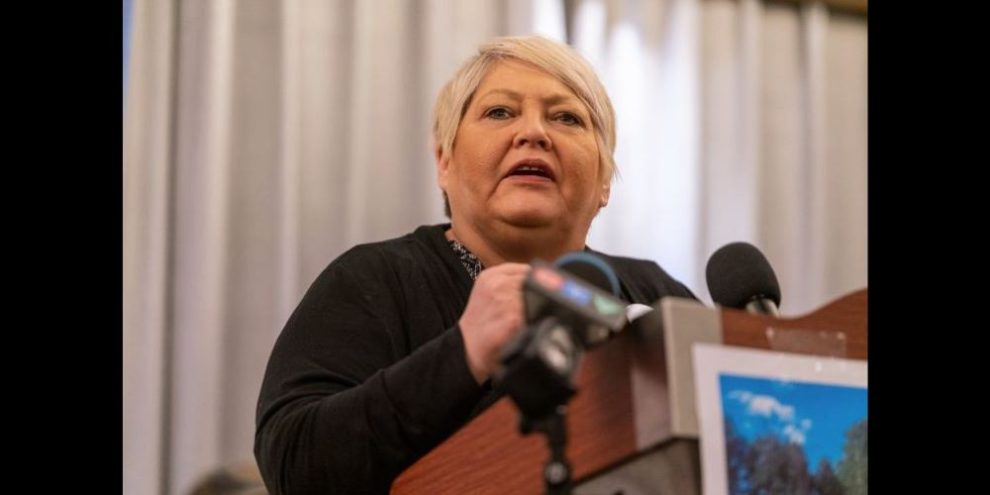
By Alessia Passafiume and Jamin Mike
The federal Liberal government has made a lot of promises to Indigenous Peoples.
But do those promises line up with what communities on the ground really want and need, or reflect their diversity?
The Canadian Press spoke with Indigenous community members and leadership to get a sense of what their priorities are and what they think Canadians can do to ensure that truth and reconciliation moves beyond aspiration and into action.
Dani Lanouette, Chippewas of Nawash and Algonquins of Barriere Lake: Missing and murdered Indigenous women and girls
Dani Lanouette has been following the case of the remains of two women believed to be in a Winnipeg-area landfill closely.
More specifically, she has been keeping an eye on what she says is a lack of action to take the issue of missing and murdered Indigenous women and girls seriously, or seriously enough to understand the importance of bringing loved ones home to their families, regardless of the cost.
The remains of Morgan Harris and Marcedes Myran, two First Nations women, are suspected to be in the Prairie Green Landfill, a private facility north of Winnipeg. Families and supporters have been calling for provincial and federal leaders to fund a search.
Jeremy Skibicki has been charged with first-degree murder in the deaths of Harris, Myran and two others — Rebecca Contois, whose partial remains were found in a different landfill last year, and an unidentified woman Indigenous leaders are calling Mashkode Bizhiki’ikwe or Buffalo Woman.
A federally funded feasibility study found a search of the landfill is possible, but toxic materials and asbestos could pose a risk to workers. Manitoba Premier Heather Stefanson declined to search for the missing women, while the federal government has been noncommittal on a search, but has been meeting with the women's family members.
Politicians not taking the crisis seriously isn't a new phenomenon, Lanouette said, thinking back to her time in high school when former Conservative prime minister Stephen Harper was in power.
She said she still remembers Harper saying in 2014 that an inquiry into missing and murdered Indigenous women and girls wasn't a top priority for his government. Prime Minister Justin Trudeau went on to fund such an inquiry after winning the 2015 federal election.
"A lot of it has to do with a lack of care for safety," she said.
Still today, she said she feels that "the safety of Indigenous Peoples isn't being taken seriously despite the (Liberal) government saying their relationship with Indigenous Peoples is one of their biggest priorities."
Lanouette said she wants to see all leaders, regardless of their jurisdiction, take the issue more seriously, and address the calls to action included in the inquiry's final report in 2019.
And she wants the landfill to be searched.
"Despite having the MMIW inquiry and the final report, it's very much being seen as lip service right now," she said.
Heather Bear, Ochapowace Nation: Indigenous Languages revival
Heather Bear has spent the last decade advocating for treaty and inherent rights recognition on behalf of 74 First Nations throughout Saskatchewan at the Federation of Sovereign Indigenous Nations, one of the largest Indigenous political groups in Canada.
She's a survivor of both a residential school and a federally run day school, and first stepped into leadership in 2007 as a councillor for the Ochapowace Cree Nation in southern Saskatchewan.
She said she wants to see a sense of urgency from the federal government and from Canadian citizens in helping Indigenous Peoples find concrete solutions to issues stemming from colonialism and residential schools, and highlighted the importance of preserving language.
She said she grew up with people who were badly wounded in the schools. "When I look to reconciliation, it’s really painful to think about as a survivor."
But she said she's beginning to see settlers understand why Indigenous Peoples disproportionately suffer from mental health and addiction issues, because of the work of the Truth and Reconciliation Commission.
"Today, we want to remember the ones who didn’t come home and, of course, the adults who lived through that pain, endured it, and are here to tell the stories," she said.
"And I think Canada needs to do more to make sure we have elders and language speakers."
One way to make that happen, she said, is Indigenous language immersion programs to be offered, "in the same way that immigrants get when they come to this country and want to keep their identity."
"We should be able to have those rights more than anyone else. When it comes to language and culture, and land," she said.
Chelsee-Marie Pettit, Aamjiwnaang First Nation: Economic reconciliation
Chelsee-Marie Pettit, the owner of aaniin Retail Inc., an Indigenous-owned clothing retailer in Toronto, wants to see Canadians and other businesses support Indigenous-owned businesses outside of big events like the National Day for Truth and Reconciliation or National Indigenous Peoples Day.
She said she feels the same way about news organizations that she said speak to — and about — Indigenous Peoples much more leading up to those days than they do outside of them.
When planning her inaugural Truth and Reconciliation Day event last year in Toronto, she said she was bombarded with phone calls from news outlets who wanted last-minute interviews with her ahead of time. She said as a business owner who was mostly running the ship alone, that led to undue stress.
"I felt a huge weight (to make) it a good day for my community," she said. "And it made me feel like I was missing opportunities when I wasn't able to talk with people."
Planning in advance, and telling stories about Indigenous Peoples the other 363 days in a year, is important, she said.
Other businesses reach out to aaniin ahead of Orange Shirt Day to place bulk orders for their employees or events, but she wants to see support for her business — and others like it — reach beyond singular events.
For Canadians and governments to support Indigenous businesses could be much more of a habit, she said.
"If you know that you need something from any industry, go out of your way and search if there's an indigenous business or person doing that," she said, calling it an example of economic reconciliation.
"That's helping us put back money into our communities, and helping uplift (Black, Indigenous and people of colour) and marginalized groups."
Mishiikenh Kwe (Autumn Smith), Magnetawan First Nation: Community-building
Mishiikenh Kwe (Autumn Smith), an artist based in Magnetawan First Nation, is using their art to create opportunities for other artists, and to share Indigenous cultures with the non-Indigenous community.
At art shows hosted in cities across Ontario, Smith said they've met non-Indigenous people who tell them they've heard little to nothing about the legacy of residential schools, or Indigenous Peoples in general.
Sometimes, Smith said, people don't seem to know that Indigenous folks still live in Canada.
"It was just so shocking to me that I live a few hours north, and people didn't even know I was there," Smith said.
That's why they say it's important for people from all backgrounds to have access to collective spaces such as art shows. There, communities can come together to share stories "because people need to know the truth before we can talk about reconciliation."
That's the case within Indigenous communities, too, they said, where knowledge must be shared across generations for cultural practices to thrive, and "in order to preserve what we have left."
They also want to see more outreach being done in First Nations communities, noting they often only become aware of funding and other opportunities for artists when they travel to a city.
That leaves out many people in smaller communities who may be interested in applying, but lack the knowledge of where to find programs.
This report by The Canadian Press was first published Sept. 29, 2023.
Banner image via The Canadian Press





